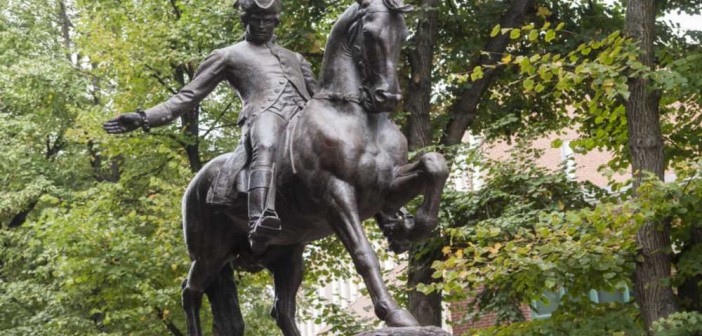Lovett H. Weems, Jr., reveals that Paul Revere was not a lone actor, but an organizer, connector, and motivator involving about 60 others in his effort.
In 1861, Henry Wadsworth Longfellow published his famous poem, “Paul Revere’s Ride.” It transformed Paul Revere from a New England regional folk hero into a national figure of high prominence.
Written as the nation was moving toward Civil War, Longfellow wanted to say to those in the North that one solitary person acting alone could change history. And, according to historian David Hackett Fischer, Longfellow’s poem succeeded brilliantly in creating an indelible image of Paul Revere as a solo hero, acting alone. Longfellow allowed his midnight rider only a single henchman and an anonymous friend. Otherwise, the poet’s Paul Revere needed no help from anyone.
Historian Fischer reveals, however, that the poem is historically inaccurate in virtually all details. (Paul Revere’s Ride, Oxford University Press, 1994) While the image of one lone person setting out on a solitary mission of warning is stamped in our national consciousness, Revere’s accomplishment was, in fact, much more a group effort. Fischer discovered that about sixty people were riding or were otherwise involved.
Revere was not a lone actor, but an organizer, connector, and motivator — in other words, a leader. Rather than taking away from Paul Revere’s accomplishment, this discovery enhances what he did. Fischer’s research is a good reminder that leadership is always about collective action.







